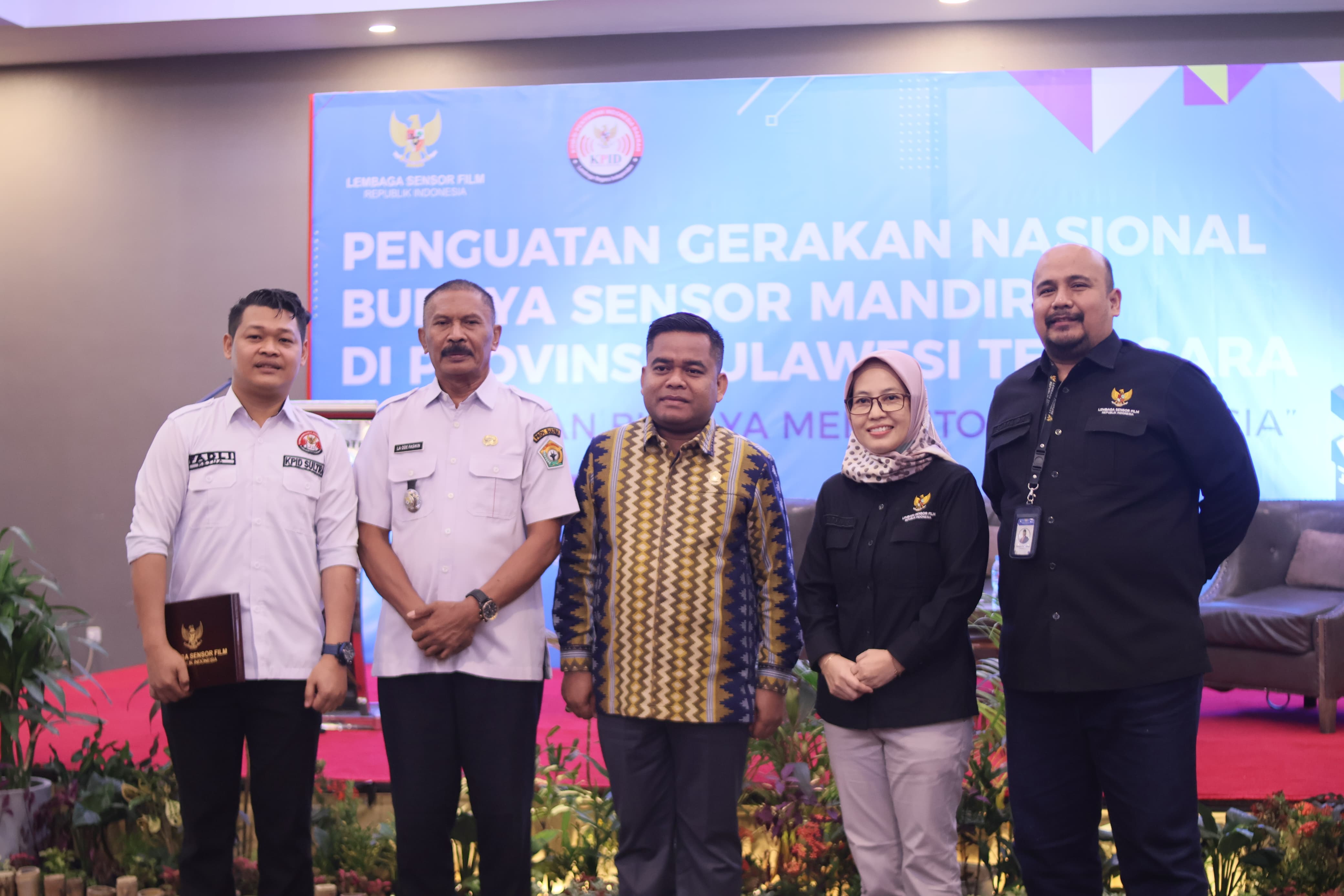
Strengthening the National Movement for Self-Censorship Culture in Southeast Sulawesi
Promoting a Culture of Conscious Viewing: LSF Brings National Self-Censorship Movement to Southeast Sulawesi
Kendari — With the ever-growing volume of visual content flooding screens big and small, Indonesia’s Film Censorship Institution (Lembaga Sensor Film, or LSF) continues to champion media literacy and responsible viewing. On Wednesday, July 16, 2025, the Board brought its flagship initiative—the National Movement for a Culture of Self-Censorship (GNBSM)—to the province of Southeast Sulawesi, holding a major event at the Swiss-Belhotel Kendari.
This movement is rooted in Article 57 of Law No. 33 of 2009 on Film, which mandates that all films and film advertisements to be distributed or shown publicly in Indonesia must first obtain a Film Censorship Certificate (STLS) from LSF. The overarching goal: to protect the public from harmful media while empowering filmmakers and audiences alike to engage with content more critically and responsibly.
Focusing on censorship through education, LSF aims to nurture a public that not only follows the rules but understands the “why” behind them. “Film literacy is key to ensuring productions, distributions, and screenings align with national standards and cultural values,” the institution emphasized in its official statement.
A Push for Awareness in the Digital Era
Southeast Sulawesi’s Regional Secretary (Ad Interim) , La Ode Pasikin, speaking on behalf of Governor Andi Sumangerukka, expressed the provincial government’s strong support for the movement. He highlighted how GNBSM aligns with the region’s vision of becoming “Advanced, Safe, Prosperous, and Religious.”
“We urge all stakeholders to internalize the values of GNBSM, particularly within digital literacy and character education programs,” he said, noting the importance of building cultural resilience in the face of overwhelming digital content.
Protecting the Young and Vulnerable
Representing LSF, Titin Setiawati—Head of the Board’s Public Outreach Sub-Commission—stressed the importance of protecting young audiences from the negative impact of film and ad content. “We hope this initiative encourages viewers in Southeast Sulawesi to choose age-appropriate content, especially for children and teenagers,” she said. “There is so much potential for film to enrich, not just entertain.”
Also speaking at the event, Fadli Sardi, Chair of the Regional Indonesian Broadcasting Commission (KPID) of Southeast Sulawesi, highlighted the need for media awareness in families. He warned of the dangers children face when exposed to excessive media consumption without proper parental guidance. “Children’s critical thinking is still developing. Without support, they are vulnerable to harmful media influences.”
Sardi also emphasized the importance of enforcing the Broadcasting Code of Conduct (P3) and Broadcasting Program Standards (SPS), calling them “essential tools” to ensure all media content respects legal, cultural, and social norms.
Cultivating a Healthy Viewing Culture
Closing the event, Satya Pratama, Head of LSF’s Censorship Technology Sub-Commission, outlined the movement’s three core objectives:
To build public awareness around age-appropriate viewing;
To protect younger generations from the psychological risks of unsuitable content; and
To foster a healthy, conscious film-watching culture in the digital era.
With initiatives like GNBSM, LSF hopes to inspire not just compliance—but conversation, curiosity, and care in the way Indonesians consume media.








